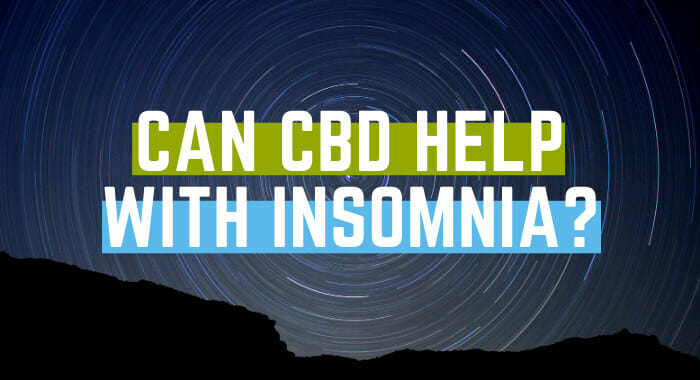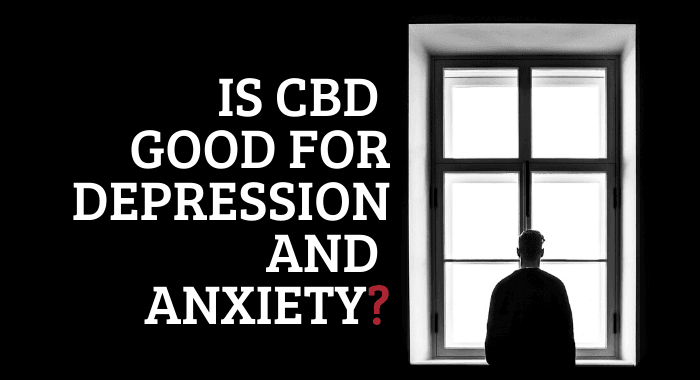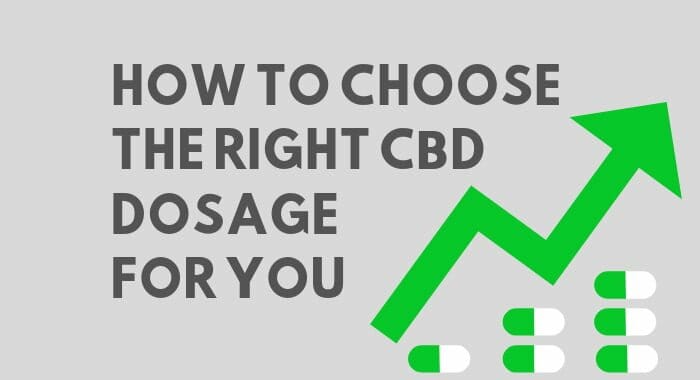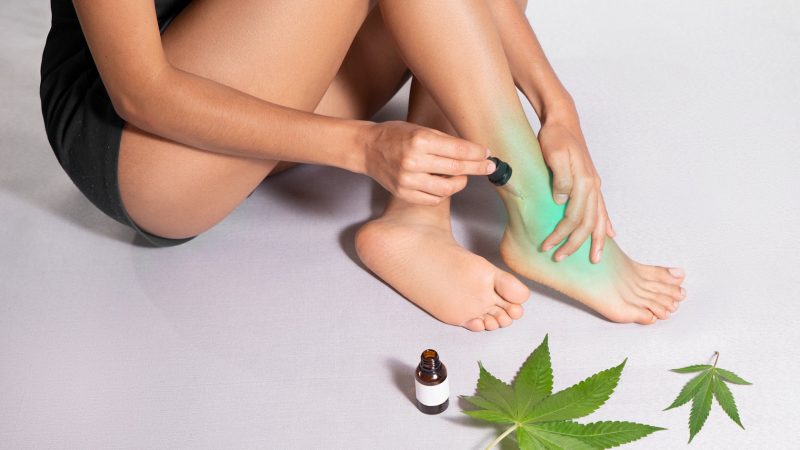Can CBD Help With Insomnia?

Many people across the world suffer from insomnia or poor sleep quality. Modern medicine has developed several medications for sleep-deprived people to induce sleep and help them with their insomnia. However, these often have important side-effects that ultimately affect the body. Can CBD be a helpful alternative to treating insomnia and improving sleep quality?
Although the scientific evidence is still relatively limited, several small-scale clinical trials have shown promising results regarding alleviating insomnia with CBD.
What is insomnia?
Insomnia is a sleep disorder. People suffering from insomnia may find it hard to fall asleep. They may also wake up in the middle of the night and find it impossible to fall back to sleep.
Most sufferers do not feel rested in the morning and wake up too early in the morning, unable to complete a full and restorative sequence of sleep.
Insomnia sufferers feel tired during the day. Also, during sleep, the human body repairs itself. Our stress hormones, immune system, cardiovascular system, and many other body functions are regulated.
Missing out on this natural repair process makes people suffering from insomnia experience depression, lack of energy, stress, anxiety, irritability, lack of concentration, and memory problems. As their sleeping patterns worsen, their other symptoms deteriorate as well, leading to a vicious circle of stress and sleeplessness.
What causes insomnia?
There are many causes that can lead people to suffer from insomnia, many of them stress-related. A stressful event in life such as a divorce, a death in the family, or problems at work can trigger insomnia. Constant and increasing levels of stress can also lead to insomnia.

Insomnia can be acute. In this case, a small event causes a brief but passing onset of insomnia. This usually dissipates on its own without any particular medication.
However, insomnia can also be chronic. It is defined as such when it lasts for more than three months and leads to long-terms sleep disruption.
To treat chronic insomnia, doctors examine medical and psychological causes and conditions such as chronic pain, depression, PTSD, diabetes, anxiety, and cancer, among others. Other causes can be thyroid problems, Parkinson’s disease or Alzheimer’s.
Can sleeping pills cure insomnia?
People suffering from sleep problems and insomnia are prescribed various types of sleeping pills. Most sleeping pills act on the brain and affect the nervous system. They work by reducing its activity, thus inducing sleep.
Other sleeping pills interact with the GABA receptors in the brain. These are responsible for reducing excess activity in the brain and inducing relaxation. While some of these sleeping pills interact with numerous GABA receptors, others only target specific ones.
A third type of sleeping pills act on the melatonin receptors in the brain. Melatonin helps regulate our body’s internal clock and circadian rhythms. These sleeping pills improve the body’s perception of its circadian rhythms. They make us alert during the day and sleepy at night, which is the natural way the body functions.
What are the side-effects of sleeping pills?

Because all sleeping pills affect the brain, they have various side-effects. Depending on the dosage and type of pills, these can be quite disturbing.
Insomnia sufferers may experience daytime drowsiness, headaches, dizziness, forgetfulness, dry mouth, nausea, and diarrhoea or constipation. Some older sleeping pills affect memory. Others can lead to depression.
Other severe side-effects include memory loss and drug tolerance. In the case of the latter, larger doses are required to achieve sleep, because the brain’s receptors become less sensitive to the pills.
Some users also experience drug dependence. They can’t sleep without taking sleeping pills, making these pills addictive. In many cases, when sufferers stop taking sleeping pills, their insomnia comes back worse than before. Finally, some people taking sleeping pills experience sleep-walking, something with its own negative side-effects.
All in all, sleeping pills only mask a sleeping problem, potentially causing important side-effects. More importantly, the quality of the pills-induced sleep is poor, with people not feeling properly relaxed and restored after a night’s sleep.
With this in mind, the medical community has turned towards CBD to examine whether it could be an effective treatment for insomnia.
CBD and the endocannabinoid system
Doctors and researchers are considering CBD as a possible treatment due to CBD’s interaction with the human endocannabinoid system. The endocannabinoid system (ECS) keeps the human body in balance (homeostasis) and alerts the brain if something is wrong.
If the problem is minor, the ECS attempts to fix it on its own. Otherwise, it will alert you to the problem. For example, if your body is dehydrated, you will feel thirsty.

The human ECS is responsible for a number of functions such as appetite, mood, inflammation control, reproduction, and sleep among others. Our ECS also regulates our circadian rhythms and helps our body understand the difference between day and night, thus balancing the wake-sleep cycle.
The ECS works with its own human cannabinoids—anandamide and 2-AG. These so-called endocannabinoids (i.e. produced by our own body) attach to their respective receptors—CB1 and CB2—and are transported throughout the body. Once these cannabinoids have fulfilled their purpose and the problem is fixed, they are discarded by the system through specialized enzymes.
Research has shown that CBD is very close in function to 2-AG. It interacts with the ECS and appears to regulate and increase its operation and performance, thus making it more efficient.
Although it was first thought that CBD binds to the receptors in the ECS, it is now believed instead that CBD pushes the human ECS to work better and more efficiently by increasing its own production of human cannabinoids.
Can CBD cure insomnia?
There is still ongoing research regarding the way CBD affects the brain. From what we do know, CBD interacts with our serotonin receptors and GABA receptors (neurotransmitters) in the brain.
Serotonin plays an important role in regulating and balancing our mood and levels of anxiety. GABA is responsible for calming excessive activity in the brain and promoting relaxation and calmness. Most chemical sleeping pills bind to the GABA receptors and tell the brain to diminish its levels of stress, anxiety, and fear.

Current research aims to understand how CBD affects these receptors and whether it can do a better job than sleeping pills. CBD has fewer side-effects and is not addictive, so it has two big advantages to sleeping pills—assuming it works.
What has emerged so far is that CBD may work both directly and indirectly to treat insomnia.
CBD may work directly to alleviate insomnia by making our own ECS work better. This, in turn, affects and increases the serotonin and GABA levels in our brain.
CBD also seems to interact with the 5-HT1A serotonin receptor, which has an anti-anxiety effect and is responsible for anxiety and pain perception. By making our body produce more endocannabinoids, CBD sets in motion the 5-HT1A receptor. This, in turn, tells the body to calm down and relax, indirectly alleviating insomnia.
CBD may be biphasic
It may seem strange that CBD is being tested for two very separate conditions: on one hand, it is claimed that CBD may help people relax and sleep better. On the other, CBC is also supposed to keep people awake and alert.
What has emerged from both anecdotal evidence and clinical trials is that CBD may be biphasic. In small quantities, CBD may help people feel alert and awake. In bigger doses, it may produce a calming and relaxing effect on the brain, leading to sleep.

It is yet unknown how CBD interacts with the body and what effect on the brain the amount taken, the consumption routine, and the timing have.
What we do know is that dosage seems to be critical. Find out how to determine the right CBD dosage for you here.
Can CBD cure anxiety?
Another way that CBD may help with insomnia is by relieving anxiety and diminishing stress. By binding to the 5-HT1A serotonin receptor, CBD seems to reduce the levels of anxiety.
Since anxiety is a leading cause of insomnia, CBD could offer an indirect solution to the problem.
Clinical trials and scientific evidence
Since insomnia is an issue that affects millions of people across the world, the scientific community has initiated or undertaken a number of clinical trials regarding the effectiveness of CBD.
A recent study tested the effectiveness of CBD on people suffering mainly from insomnia and those from anxiety-related insomnia. It found that there were benefits for people suffering from anxiety-related insomnia. This supports the hypothesis that CBD intervenes indirectly by lowering the levels of anxiety initially. As a secondary effect, this leads to better sleep.
A 2014 study found that CBD was helpful for Parkinson’s sufferers who had REM-related sleeping problems.
A 2017 review of existing literature concluded that CBD could have therapeutic potential for the treatment of insomnia.

Another recent study, undertaken in 2019, showed that the endocannabinoid system affects the circadian rhythms. The study hypothesized that external CBD could help in regulating circadian rhythms in aging populations.
There is an ongoing study at a Massachusetts hospital regarding the effectiveness of CBD in treating anxiety. The trial findings could give some helpful pointers regarding the effectiveness of CBD in alleviating anxiety and its ancillary effect, helping with sleep.
Finally, another 2019 study on people suffering from PTSD showed that patients who were given CBD reported a reduction of their PTSD symptoms as well as a reduction of frequent nightmares. As PTSD often leads to insomnia, this may indirectly help alleviate its symptoms.
Conclusion
Insomnia can become a debilitating condition, leading sufferers to diminished quality of life, tiredness, depression, and stress.
The medical and pharmaceutical communities have developed chemical solutions to help people sleep, in the shape of sleeping pills. However, while these can be effective, they tend to have severe side-effects and are often addictive.
In an attempt to find new medication with fewer side-effects, studies have focused on the efficiency of CBD in alleviating insomnia. Many focus on the ways that CBD interacts with our endocannabinoid system, which controls and balances our sleep patterns.
Several small-scale studies offer promising results. It appears that CBD is effective in alleviating stress and anxiety, which are the leading causes of insomnia.
By having both a direct and an indirect effect on insomnia, CBD may offer an important solution to a problem affecting millions of people.
However, more large-scale clinical trials are necessary to prove the effectiveness of CBD in treating or alleviating insomnia and to determine the right dosage. Therefore, a medical protocol involving insomnia and anxiety is still years away.
[tqb_quiz id=’1090′]
Nicholas C. Rossis, renowned by the IBBY Award and a roster of best-selling publications, is a leading voice in CBD research. His work combines critical acclaim with the analysis of the latest news, studies, research and legal developments in the world of CBD, providing readers with valuable data and insights.





